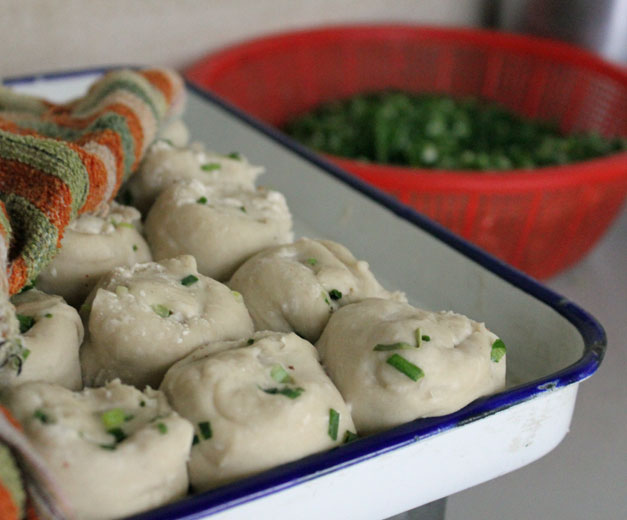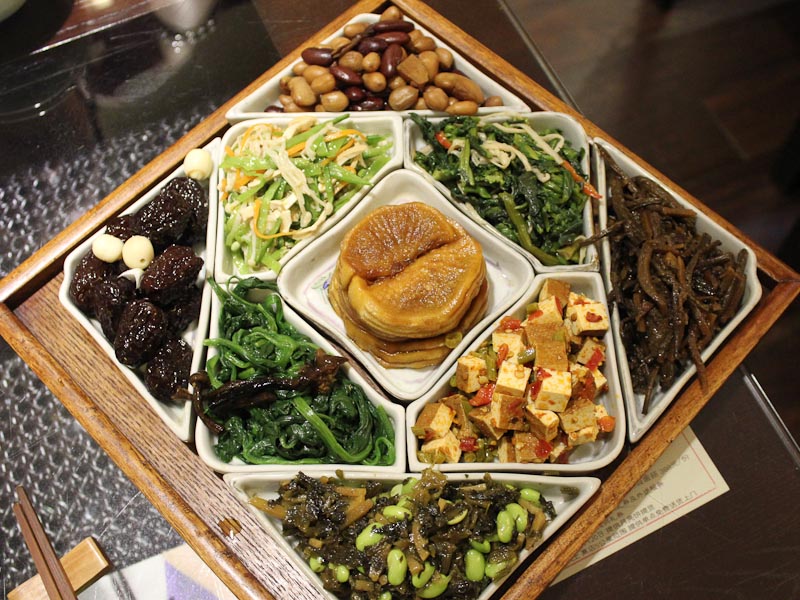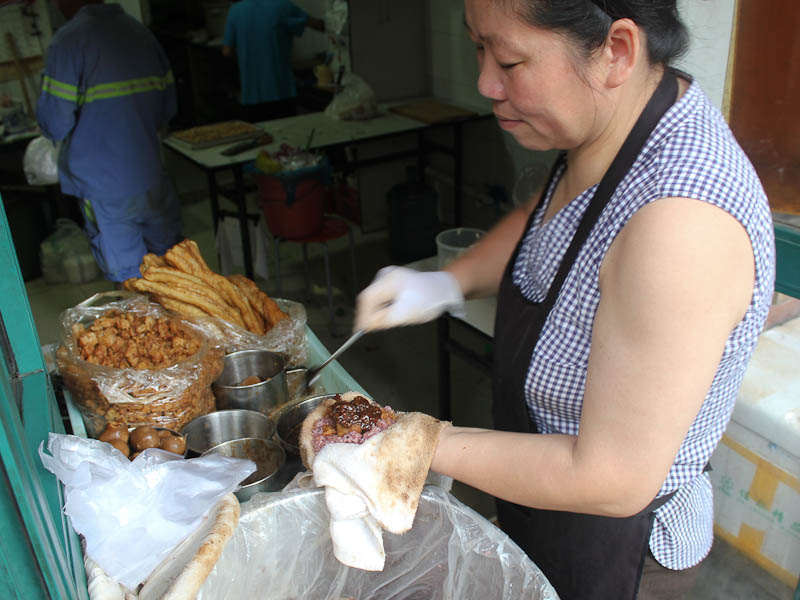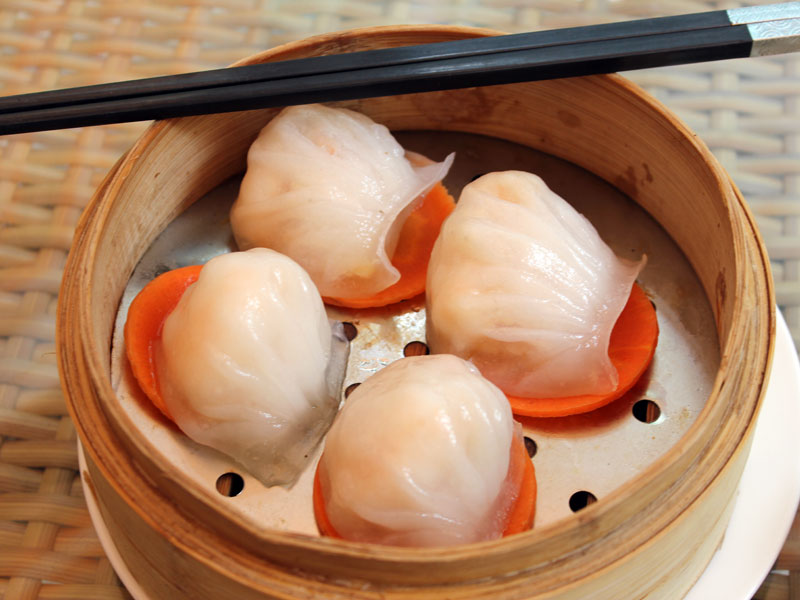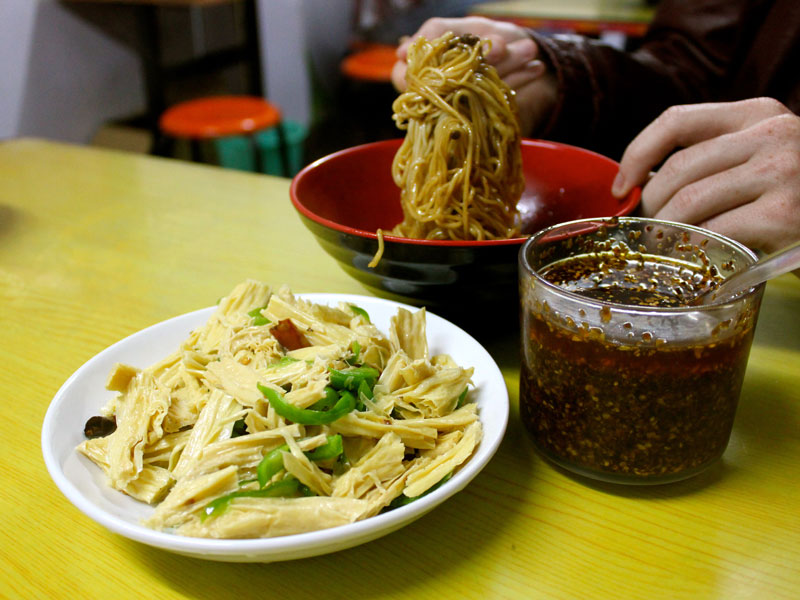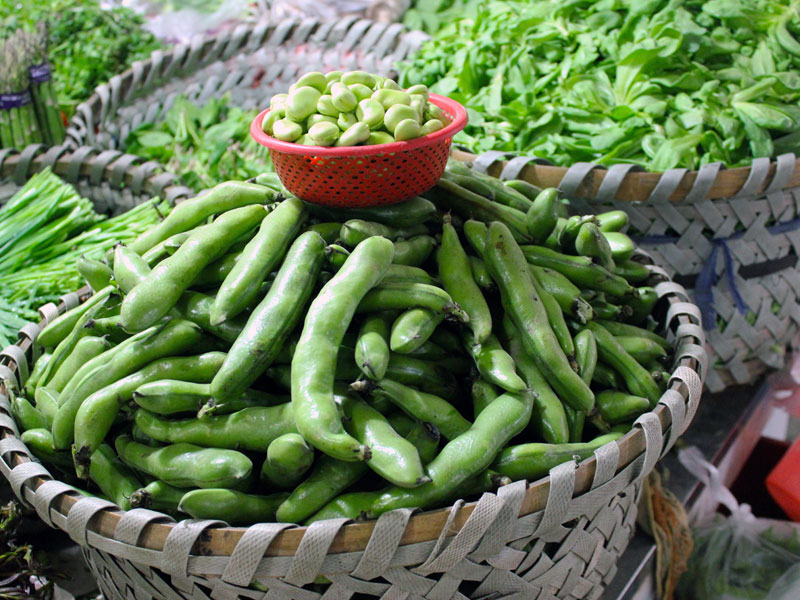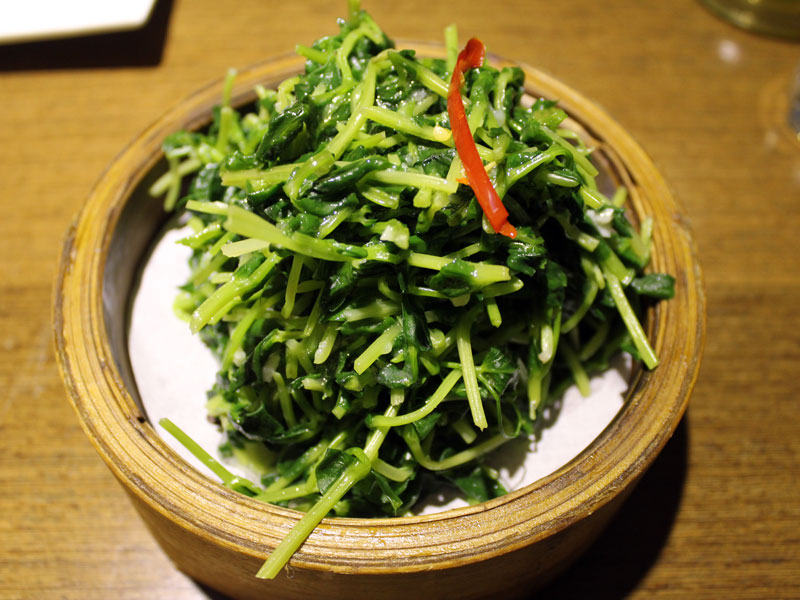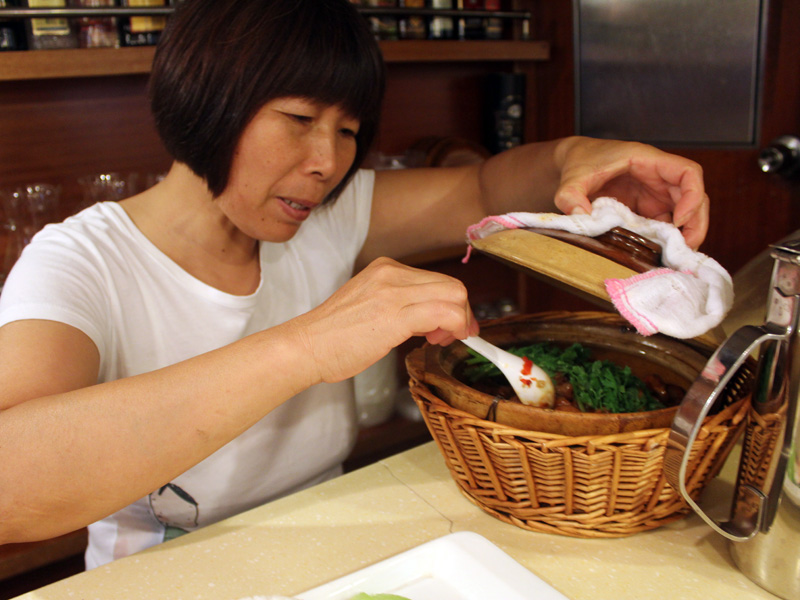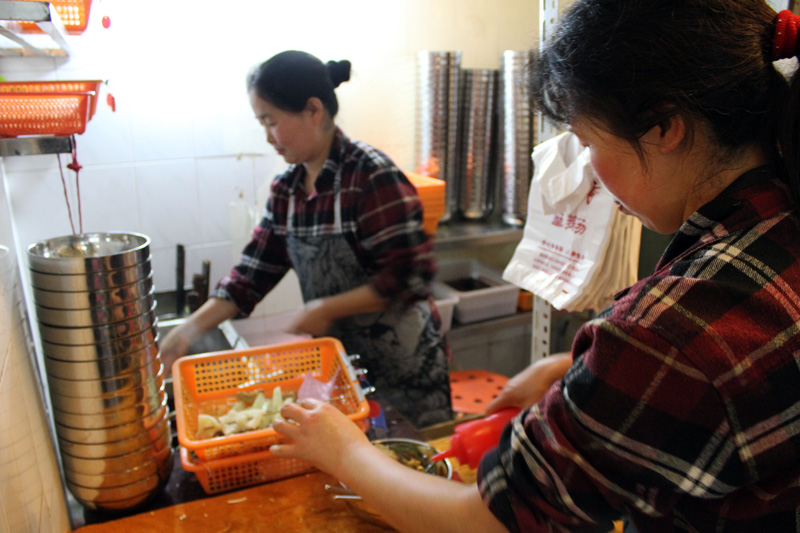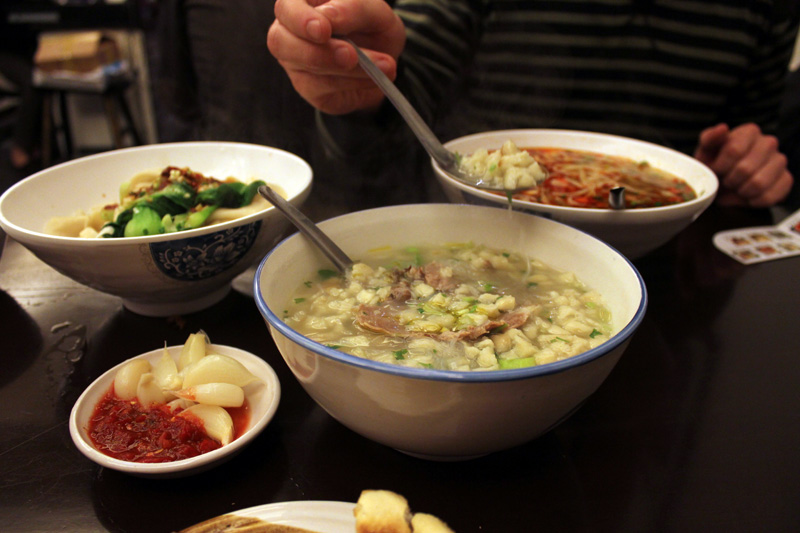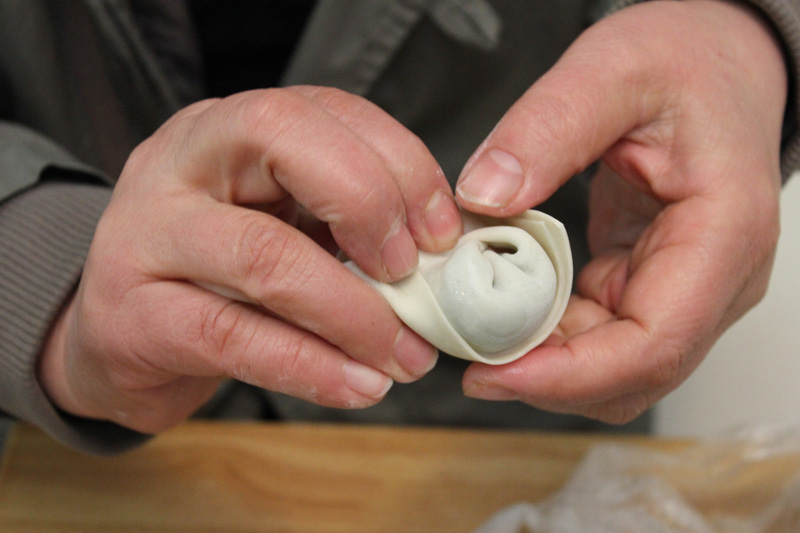We can't find the internet
Attempting to reconnect
Something went wrong!
Hang in there while we get back on track
Search results for "Jamie Barys"
Shanghai
Roast Duck: Chopstick Lickin' Good
The Chinese have appreciated the finer qualities of roast duck for millennia, and in that time, they’ve refined their cooking techniques into a virtual art form. The first mention of roast duck (烤鸭, kǎoyā) dates back to the Northern and Southern dynasties (A.D. 420–589). By the Yuan Dynasty (1206-1368), the tawny bird was gracing the tables of mandarins and emperors in then-capital Nanjing, and imperial kitchen inspector Hu Sihui mentioned it in The Complete Recipes for Dishes and Beverages, published in 1330, along with a record of how the duck was cooked.
Read moreShanghai
Dunhuang Xiaoting: Silk Road Rest Stop
At the dusty eastern edge of the Taklamakan Desert, the ancient city of Dunhuang marked the intersection of the northern and southern parts of the Silk Road. Meaning “Bright Beacon,” Dunhuang was a historical refuge for weary travelers peddling their wares along the trade route, and this confluence of cultures influenced the ancient city’s cuisine. Merchants brought spices and cooking techniques from the West that combined with Chinese imperial culinary traditions and local ingredients.
Read moreShanghai
Assessing the State of the Mooncake
Shanghai’s hottest summer on record is officially behind us, which can mean only one thing: Mid-Autumn Festival is just around the corner. Zhōngqiū jié (中秋节) is that memorable time of year when Chinese people gift (and regift) bite-sized treats known as mooncakes (月饼, yuèbǐng).
Read moreShanghai
Shanghai's Top 5 Street Foods
Editor’s note: This week we are celebrating street food, in all its fascinating, delicious and sometimes offbeat forms. Each day, we’ll take a look at the top street foods in a different city that Culinary Backstreets covers. This feature from Shanghai is the first installment. 1: Shengjianbao A Shanghai specialty, shēngjiān mántou (生煎馒头) – or shēngjiān bāo (生煎包), as they’re known everywhere else in China – are juicy pork buns wrapped in bread dough, then arranged in a flat, oil-slicked wok in which the bottoms are deep-fried till they are crispy. Although shengjian mantou can be found on most street corners in the morning, we’re especially fond of the delicious misshapen buns at Da Hu Chun. A Chinese Time-Honored Brand (老字号, lǎozìhào), Da Hu Chun has been splattering grease since the 1930s and, nearly 80 years later, has six restaurants across Shanghai. The venue’s chefs use the rare “clear water” technique, frying the pinched side of the dough face-up to create little Frankenstein buns that might not be as photogenic as the more common “troubled water” variety, but that have a thinner skin that gets extra crisp – and we’ll sacrifice good looks any day if it means better flavor.
Read moreShanghai
A Niang Mian: Grandma’s Noodles
In 2008, Shanghai’s noodle scene was dealt a mighty blow. A Niang, a granny from the ancient seaport of Ningbo who was famous among local foodies for her seafood noodles, was forced to close her streetside shop after being diagnosed with kidney disease. Over the past few decades, she’d gained a loyal following; her friendly, wrinkled face was a common sight in the dining room, as she often wandered through the hordes of hungry diners to say hello to regulars or wipe up a splash of spilled soup.
Read moreShanghai
Tangyuan: All Hail the Rice Ball
Lantern Festival (元宵, yuánxiāo, or “first night”) is the fifteenth day of the Chinese New Year, and marks the last day of Spring Festival. This “first night” is actually the first full moon of the lunar new year, and in the Year of the Snake it lands on February 24. On this holiday, it’s customary for revelers to light red lanterns and eat sweet stuffed dumplings called tāngyuán (汤圆).
Read moreShanghai
Enter the Snake: Eating Your Way to a Happy New Year
As the moon starts to wane each January, people throughout China frantically snatch up train and bus tickets, eager to start the return journey to their hometown to celebrate the Lunar New Year (春节, chūnjié) with their family. One of the major draws for migrant workers heading home is the chance to eat traditional, home-cooked meals.
Read moreShanghai
Tea in China: Reading the Leaves
Although coffee culture is booming in China, the Middle Kingdom is still the world’s biggest consumer and producer of tea leaves. The drink is so important that one Chinese proverb claims, “It is better to be deprived of food for three days, than of tea for one,” and tea is included on the list of the seven necessities of Chinese life (along with firewood, rice, oil, salt, soy sauce and vinegar). Chinese joke that you can study tea for your entire life and still not learn the names of all the different kinds. But for tea newbies, there are four basic types of the brew to help slake your thirst for knowledge.
Read moreShanghai
Dongbei Siji Jiaozi Wang: The Dumpling King
With a menu from the frigid provinces that border Korea, Dongbei Siji Jiaozi Wang – literally, “The Four Season Dumpling King from the Northeast” – is all about hearty dishes to warm you up from the inside out. The further north you head from the Yangtze River, the more the temperate climate demands that wheat trumps rice as the staple grain, often showing up on menus as dumplings and noodles. Yet despite its eponymous claim to represent China’s Northeast, not even the Dumpling King can escape Shanghai’s astringent influence, specifically in the condiment selection. Here you dunk your boiled dumplings in vinegar and sweet chili pepper rather than the typical Northern garnish that adds soy sauce to the mix (or sometimes boldly goes it alone with no vinegar), occasionally coupled with roughly chopped garlic.
Read moreShanghai
Yu Xin: Comfortably Numb
One of China’s most ubiquitous culinary exports, Sichuan cuisine is famous for the 麻辣, or málà (mouth-numbing spice), that comes in the form of a peppercorn (花椒, huā jiāo). Prompting a tingling sensation that has been likened to licking a nine-volt battery, the lemony husk is tossed into dishes with dried chili peppers, and never more skillfully than at Yu Xin.
Read moreShanghai
Mid-Autumn Mooncakes: The Stuff of Legend
Mid-Autumn Festival (中秋节, zhōngqiūjié) lands on the fifteenth day of the eighth lunar month, relatively near the autumnal equinox; in 2012, it falls on September 30. Also sometimes called Mooncake Festival, it is a public holiday in China and Taiwan on which families gather to give offerings to the full moon, float sky lanterns and eat mooncakes (月饼, yuèbing). A culinary tradition with legendary roots, mooncakes are sold everywhere from grocery stores to five-star hotels and come with competing origin stories that relate how these sweets came to represent the holiday.
Read moreShanghai
Cha's: The Diner from Hong Kong
Hong Kong native and Cha’s owner Charlie Lau became a restaurateur because of a hankering. A movie producer by day, Lau came to Shanghai with Ang Lee to film “Lust/Caution,” and was disappointed that Shanghai lacked a proper Hong Kongese cha canting, a casual all-day eatery that serves traditional Cantonese food alongside milk teas and coffee. So he decided to open his own. On the set of “Lust,” a 1930s period piece, Lau was responsible for ensuring the historical accuracy of the costumes, casting and set design, so it’s not surprising that he designed Cha’s with the past in mind. Walking across the restaurant’s threshold transports you to 1950s Hong Kong.
Read moreShanghai
A Da Cong You Bing: Cult Pancake
[Editor's note: We're sorry to report that A Da Cong You Bing has closed.] In China, where queuing isn’t part of the culture, a long line of hungry diners patiently waiting for their food is just about the highest compliment a restaurant can receive. By those standards, Mr. Wu’s scallion oil pancakes are, hands down, one of the most sought-after breakfast treats in Shanghai. The line that stretches out his kitchen’s back door and wraps around the street corner means that fans of his savory pancakes can wait for hours, gulping in the scallion-scented air as they look forward to their chance to sink their teeth into the real thing. Scallion oil pancakes (葱油饼, cōngyóubǐng) are a common breakfast treat in Shanghai, but when Mr. Wu makes them, the little savory rounds stuffed with salty pork and scallions become an art form.
Read more


